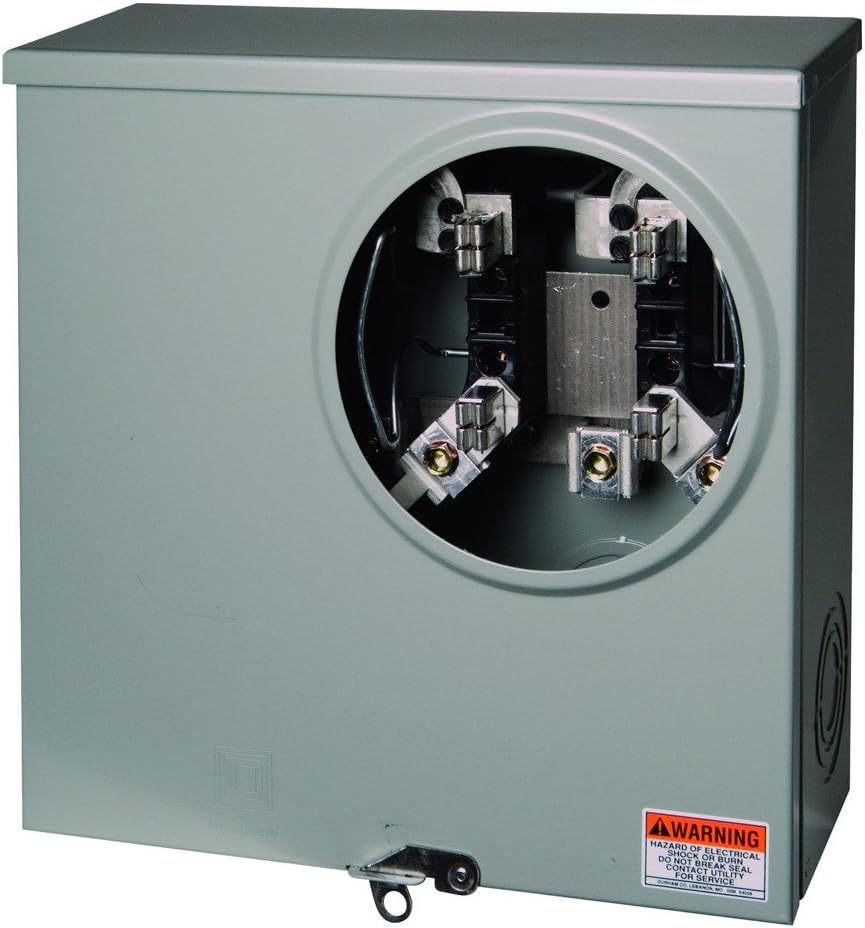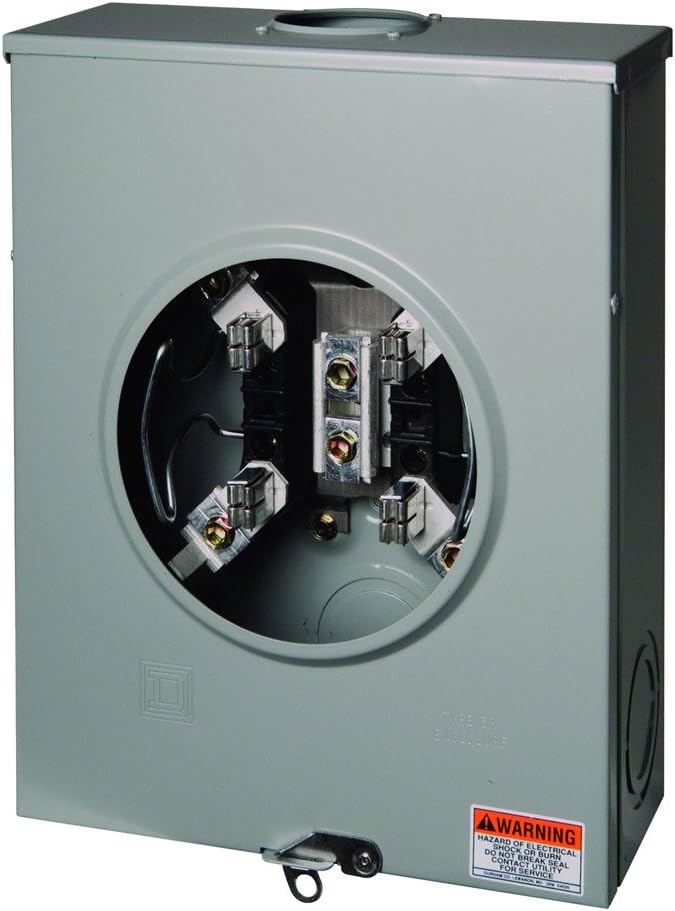Discover the benefits of sweatbands for your fitness routine. Enhance your performance and stay comfortable with these stylish and functional accessories.


Welcome to our comprehensive guide on electric meter boxes. In this article, we will provide you with all the information you need to understand electric meter boxes and help you choose the right one for your needs. Whether you are a homeowner or a professional electrician, this guide will cover everything from the basics to advanced features and considerations.
Before we dive into the details, let’s start with the basics. An electric meter box is a housing that contains the electric meter, which measures the amount of electricity consumed by a property. It is typically installed on the exterior of a building and is responsible for recording the electricity usage for billing purposes.
Choosing the right electric meter box is crucial for several reasons. Firstly, it ensures the accurate measurement of electricity consumption, which is essential for fair billing. Secondly, a properly installed and secured meter box protects the meter from damage, tampering, and unauthorized access. Lastly, the right meter box should meet safety regulations and provide convenient access for meter reading and maintenance.
There are several types of electric meter boxes available in the market. Let’s take a closer look at each type:
Surface-mounted meter boxes are the most common type and are typically installed on the outside wall of a building. They are made of durable materials such as metal or plastic and provide easy access for meter reading and maintenance. These boxes are suitable for most residential and commercial applications.
Recessed meter boxes are designed to be installed flush with the wall, providing a more aesthetically pleasing look. They are often used in new construction or remodeling projects where a clean and seamless appearance is desired. Recessed meter boxes require professional installation and may have specific requirements for wall construction.
Semi-buried meter boxes are partially buried in the ground, leaving only the top portion exposed. They are commonly used in areas where the meter needs to be protected from extreme weather conditions or vandalism. These boxes are typically made of heavy-duty materials and require professional installation.
Multi-occupancy meter boxes are designed to accommodate multiple meters for properties with shared electricity supply. They are commonly used in apartment buildings, condominiums, or commercial complexes. These boxes have separate compartments for each meter, ensuring accurate metering and easy access for meter reading and maintenance.

When choosing an electric meter box, there are several factors to consider. Let’s explore each factor in detail:
The material of the meter box plays a crucial role in its durability and longevity. Common materials used for meter boxes include metal, plastic, and composite materials. Metal meter boxes are known for their strength and resistance to tampering, while plastic meter boxes are lightweight and corrosion-resistant. Composite meter boxes offer a combination of strength and weather resistance.
The size of the meter box should be appropriate for the number of meters it needs to accommodate. It should provide enough space for meter reading and maintenance without being too bulky or obstructive. Consider the dimensions of the meters and any additional equipment that may need to be installed inside the box.
Security features are essential to protect the meter from tampering and unauthorized access. Look for meter boxes that have sturdy locks, tamper-evident seals, and reinforced construction. Some meter boxes may also have built-in alarm systems or anti-tamper mechanisms for added security.
Since meter boxes are exposed to the elements, it is important to choose a box that is weather-resistant. It should be able to withstand extreme temperatures, moisture, UV rays, and other environmental factors. Look for meter boxes that have a high IP (Ingress Protection) rating to ensure optimal weather resistance.
Consider the ease of installation when choosing a meter box. Look for boxes that come with clear installation instructions and all the necessary mounting hardware. If you are not confident in your installation skills, it is recommended to hire a professional electrician to ensure proper installation.
Ensure that the meter box you choose complies with local regulations and standards. Different regions may have specific requirements for meter box installation, construction, and safety. Check with your local utility company or building authority to ensure compliance.
Accessibility is an important consideration, especially for meter reading and maintenance. Look for meter boxes that provide easy access to the meters, wiring, and other components. Some meter boxes may have hinged doors, removable panels, or transparent windows for convenient access.
Installing an electric meter box should be done by a qualified electrician to ensure safety and compliance with regulations. Here is a general overview of the installation process:
Maintaining an electric meter box is essential for its longevity and proper functionality. Here are a few maintenance tips:

In addition to the factors mentioned above, there are a few more considerations to keep in mind when choosing an electric meter box:
Electric meter boxes have different ratings that determine their suitability for specific applications. The ratings are typically based on the maximum current capacity and voltage rating. Make sure to choose a meter box that meets the requirements of your electrical system.
Some meter boxes come with additional accessories or features that can enhance their functionality. These may include cable entry glands, meter box extensions, meter box covers, or pre-cut holes for wiring. Consider your specific needs and the availability of these accessories when choosing a meter box.
Fire safety is an important consideration when choosing an electric meter box. Look for meter boxes that have fire-resistant properties, such as flame-retardant materials or built-in fire barriers. These features can help prevent the spread of fire in case of an electrical fault.
Proper ventilation is necessary to prevent overheating of the meter and other electrical components. Look for meter boxes that have ventilation slots or louvers to allow for adequate airflow. This is especially important in areas with high ambient temperatures or where the meter box is exposed to direct sunlight.
Labeling the meter box can help identify the correct meter and ensure accurate billing. Look for meter boxes that have clear labeling options, such as pre-printed labels or space for customized labels. This can be particularly useful in multi-occupancy buildings or properties with multiple meters.
Consider your budget when choosing an electric meter box. The cost of meter boxes can vary depending on the material, features, and brand. It is important to strike a balance between quality and affordability. Do some research and compare prices to find a meter box that fits your budget without compromising on quality.

Here are a few reviews from the general public on electric meter boxes:
“The surface-mounted meter box I purchased was easy to install and provides convenient access for meter reading. It feels sturdy and secure, and I feel confident that my meter is protected.”
– John D.
“I opted for a recessed meter box in my new construction project, and I am thrilled with the seamless look it provides. The installation process was straightforward for my contractor, and I appreciate the hidden appearance of the meter.”
– Sarah L.
“I live in an area with harsh weather conditions, so I invested in a semi-buried meter box. It has withstood heavy rainstorms and extreme temperatures without any issues. I highly recommend it for added protection.”
– Robert G.
Here are some frequently asked questions about electric meter boxes:
A: It is recommended to hire a qualified electrician for the installation of an electric meter box. They have the necessary knowledge and expertise to ensure proper installation and compliance with regulations.
A: The lifespan of an electric meter box can vary depending on factors such as the material, quality of construction, and maintenance. On average, a well-maintained meter box can last for several decades.
A: It is possible to upgrade or replace your existing meter box. However, it is essential to consult with your utility company and a qualified electrician to ensure compatibility and compliance with regulations.
A: Electric meter boxes are designed to be weather-resistant, but they may not be completely waterproof. It is important to ensure that the meter box is properly sealed and any openings or gaps are addressed to prevent water ingress.

Choosing the right electric meter box is crucial for accurate metering, security, and convenience. Consider factors such as the type, material, size, security features, weather resistance, ease of installation, compliance with regulations, and accessibility when making a decision. The pros of purchasing an electric meter box include accurate metering, protection of the meter, and compliance with safety regulations. However, there are some cons such as the cost of purchasing and installing the meter box and the need for regular maintenance. Reviews from the general public highlight the convenience and security provided by electric meter boxes. And if you have any questions, consult a professional electrician or refer to the FAQs for more information.
Choosing the right electric meter box requires careful consideration of factors such as type, material, size, security, weather resistance, ease of installation, compliance with regulations, and accessibility. Additionally, consider the meter box ratings, accessories, fire safety, ventilation, labeling, and budget. By taking these factors into account, you can select a meter box that meets your specific needs and ensures the accurate measurement of electricity consumption while providing security and convenience.